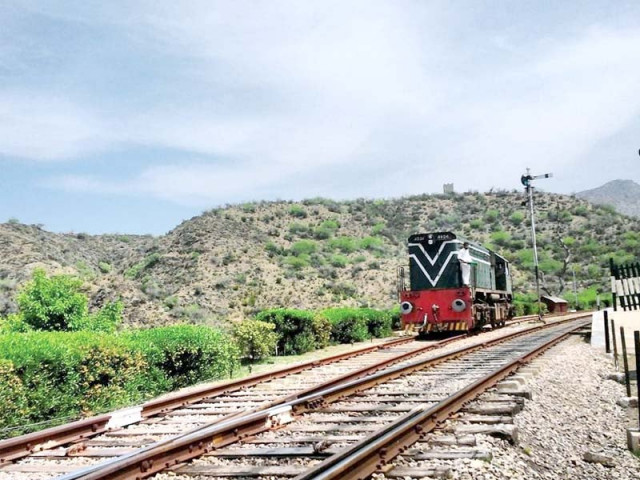Underground rail system – a way to protect environment, landscape
It offers a low-cost, rapid and time-saving transport to commuters, even car owners

PHOTO: HIDAYAT KHAN/EXPRESS
If creative and innovative focus is applied here, many avenues of progress and modernisation can be opened up in the engineering and production sector, which will save infrastructure and environment protection budgets.
Rahim Yar Khan cries out for premium train services
Policymakers need to start paying attention to putting Pakistan on the path of a protected and modern era.
In the early 1970s, underground public transport systems were adopted by nearly all major cities in the industrialised economies. Underground railways, commonly known as tubes, replaced old bus and tram systems.
Various studies show that the underground system offers a low-cost, rapid and time-saving transport facility to commuters and even car owners.
Advancements in designs and techniques of tunnel boring machines have made this progress possible. Many global companies currently hold international conferences on such competition and the advantages it brings to modern development plans.
Pakistan’s case
In the case of Pakistan, it seems that the country is operating in antiquity as limited competition exists among construction companies that could fuel development.
It will only take a few briefings from construction consultants at the Planning Commission and the country would be rolling faster into the paradigm where advantages of modern techniques would be available without much trouble.
Construction of the underground transport system involves tunnel boring and associated civil works that would provide jobs to millions while helping the country to achieve solid research and development and adopt a progressive culture of work in many fields.
Companies that do construction work for the underground transport system would acquire expertise that would open up foreign markets for them and eventually help Pakistan earn more foreign exchange.
The shifting of commuters to the underground railway system can do miracles as it reduces the ever-growing need for widening roads and bypasses. It has also a noticeable benefit for the environment and considerably reduces the concentration of carbon dioxide in the air.
This way the precious tracts over the ground and historical buildings remain undisturbed and the common man’s right to pedestrian paths is preserved forever.
Free spaces taken away by above-ground railways, trams and buses can be saved and such spaces can be converted into public parks and city centres as in many cities around the world.
The underground transport system helps to preserve the city landscape and the remodelling of towns is made possible for functional urbanisation that helps generate tourism revenues.
When talking about transformation from the antiquated ways and methods, one faces the question of manpower and engineers. There is no dearth of talented engineers in Pakistan and by utilising their services, the federal and provincial governments can evolve a long-term plan for the provision of modern public transport.
Failure of Orange Line
The Orange Line is a metro train project in Lahore that was launched without long-term planning. Expensive city land and pedestrian paths have been consumed by this project. Nearby localities and buildings will suffer from increasing levels of noise and mechanical vibrations.
This project does not deliver benefits to the domestic industry as all required rail coaches are being imported instead of arranging their construction at home.
Ironically, the planners have already inflicted a loss of Rs20 billion on the exchequer by exempting from duties and taxes the import of coaches and other equipment for the project.
The modern underground traffic system does not involve such exorbitant losses. It only needs a protective orientation in the budgeting and environment sphere.
The employment and engineering culture it might usher in would trigger progress that has remained unimaginable even after the construction of motorways and metro bus projects.
Pakistan Railways to renovate 31 more stations
To avoid controversy, the government would need to first launch a campaign for highlighting benefits of the underground traffic system. The Planning Commission would need to create a model project in one major city and demonstrate what kind of environment and budgeting benefits it can bring to urban centres of the country.
There has been a trend of launching new projects with focus in the first place on benefits to the construction companies and the machinery providers. Pakistan can have a departure from this trend by ensuring transparency in the underground transport system through close coordination among federal, provincial and local governments while conceiving these projects.
This strategy might bring in a new culture of clean policymaking and implementation in the functioning of government.
The writer has worked with major newspapers and specialises in the analysis of public finance and geo-economics of terrorism
Published in The Express Tribune, April 24th, 2017.
Like Business on Facebook, follow @TribuneBiz on Twitter to stay informed and join in the conversation.


















COMMENTS
Comments are moderated and generally will be posted if they are on-topic and not abusive.
For more information, please see our Comments FAQ